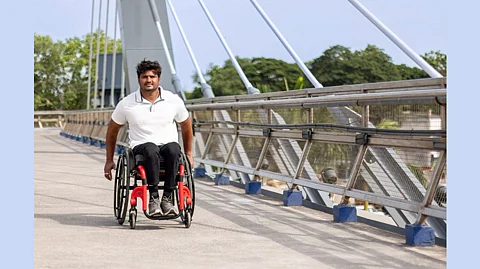The Future of Mobility is Here
The Indian Institute of Technology Madras unveiled India’s lightest wheelchair, named YD One, on Wednesday, July 17. Developed jointly by the TTK Center for Rehabilitation Research and Device Development (R2D2) and Thryv Mobility, an IIT Madras startup, the device weighs just 9 kilograms, setting a new benchmark for mobility assistive devices in India.
What Makes This Wheelchair Special
Along with being lightweight, this groundbreaking innovation is minimalistic, stylish, and available in 14 different colors. Built at par with international standards, it can be fully customized to match each user’s body, posture, and movement needs.
Crafted from aerospace-grade materials using a unique combination of carbon and aluminium, the YD One is not only stronger but also 50% lighter than traditional models.
And at a fraction of the cost, it offers high performance that was earlier only possible through expensive imports.
Explaining the durability, Justin Jesudas, Founder and CEO of Thryv Mobility, told The Hindu:


